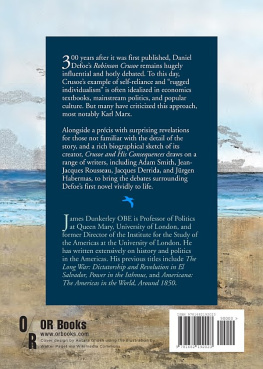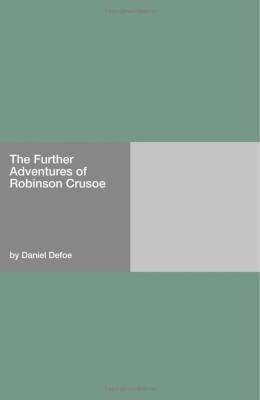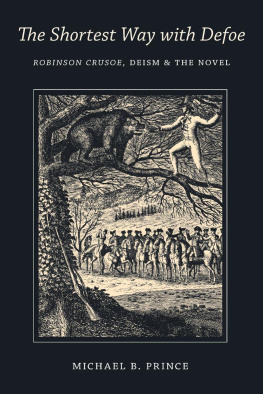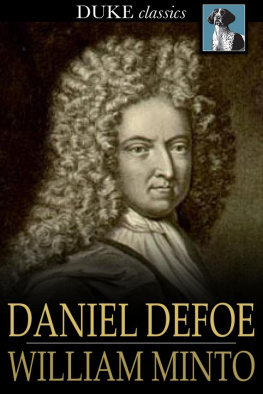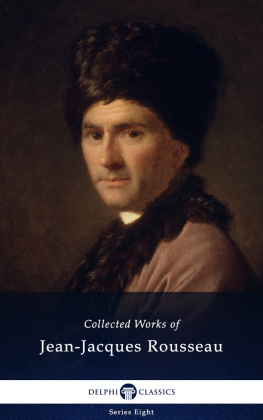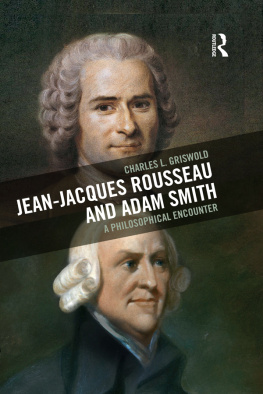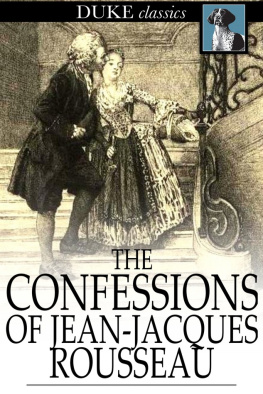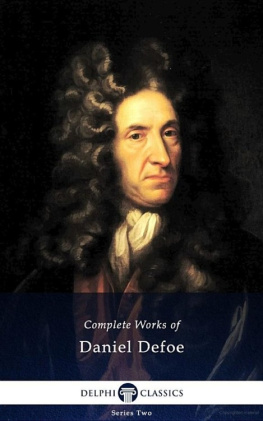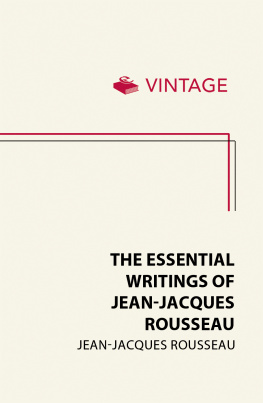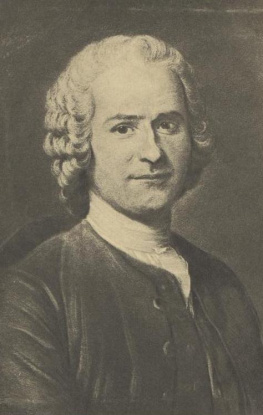


2019 James Dunkerley
All rights information: rights@orbooks.com
Visit our website at www.orbooks.com
First printing 2019
All rights reserved. No part of this book may be reproduced or transmitted in any form or by any means, electronic or mechanical, including photocopy, recording, or any information storage retrieval system, without permission in writing from the publisher, except brief passages for review purposes.
Library of Congress Cataloging-in-Publication Data: A catalog record for this book is available from the Library of Congress.
British Library Cataloging in Publication Data: A catalog record for this book is available from the British Library.
Typeset by Lapiz Digital. Printed by BookMobile, USA, and CPI, UK.
paperback ISBN 978-1-68219-202-3 ebook ISBN 978-1-68219-205-4
To Arianna
and to the memory of Uta
CONTENTS
Everything happens as though, on this fictional island, Robinson Crusoe were reinventing sovereignty, technology, tools, the machine, the becoming- machine of the tool, and prayers, God, true religion.
Jacques Derrida
Robinson Crusoe is one of the great myths of modern civilization; the story celebrates Western Civilizations material triumphs and the strength of its rational will to conquer the environment; and it also prefigures the spiritual loneliness and social alienation which have accompanied its progress.
Ian Watt
Defoe is a risk-taker, an opportunist, a hired pen, a showman, an at-times dubious businessman who cheated his mother-in-law and believed in the slave trade, but he is au fond the journalist as civic hero, the master polemicist of his age.
Tom Paulin
However, it is certain, that the Sale of a Book chiefly depends on the Universality of the Subject, and that the most excellent do not meet with the greatest Success; and accordingly, we find, that Robinson Crusoe sells quicker than Locke on Human Understanding... is it not sufficiently known, that some have acquired Estates, by printing Tom Thumb, Riddles, Songs, Fables, the Pilgrims Progress and such like common Trumpery?
A Letter to the Society of Booksellers
Whatever else he was, he was never that [a gentleman]. He was by turns a tradesman, an adventurer, a radical pamphleteer and agitator, a reporter, a spy, a gallant crusader, a crawling sycophant, a man accepted in court circles and once the confidant of the King and then able to plunge with equal zest into the lowest life of London; for months or even years on end, his diligent biographers cannot track him down through those murky, labyrinthine lairs. Half his life he seemed to be bombarding Ministers with far-seeing schemes for new trading projects, for founding new colonies, for military expeditions, for old-age pensions and maritime insurance, for establishing academies for education to asylums for the insane. Through the other half he was getting practical experience with that worst of devils, poverty.
Michael Foot
PREFACE
T he onset of every year proffers mixed lessons from the past and promises for the time up ahead. The year 1719 was no different from any other in this regard, whether we open it, in Gregorian style, on 1 January or on 23 March, according to the Julian calendar which prevailed in the young United Kingdom of Great Britain in 1719 and would not be replaced until 1751.
Of course, lessons and promises seldom allow for surprises, and when the Bank of England rate was set at 5 per cent in April 1719, nobody knew that it would endure as a base rate for over a century. Equally, when Robert Walpole sought to fix the interest on the surging national debt at that selfsame rate, he could pretty much rely upon the support of Daniel Defoe, whose Fair Payment, No Spunge argued that the debt could thereby be cleared in twenty-two years and without the highly risky speculation to which it was subject in the slippery directorial hands of the South Sea Company. Walpole and Defoe did not get their way, and the following year the Companys bubble burst in spectacular fashionthe first real market failure of the modern financial era.
There were better prospects for trading in the greater Caribbean and northern seas when news reached London of the death in the Carolinas of the pirate Blackbeard (Edward Teach) in November 1718. Blackbeard, who was based in the Bahamian island of New Providence, had taken to blockading the then unprotected settlement of Charles Town (present-day Charleston, South Carolina) and ransoming its inhabitants. A fortnight later his associate Stede Bonnet, the Gentleman Pirate from Barbados, was hanged in Charles Town, having reneged on an earlier promise to abjure the life of a refined corsair in exchange for the kings pardon. It would, though, be two more years before Calico Jack Rackham, whose ships first flew the Jolly Roger and who had likewise received a pardon only to return to piracy, was strung up in Port Royal, Jamaica. The image of Blackbeards braided and beribboned beard has endured through the Hollywood Pirates of the Caribbean franchise, the comedic voicing of whichlet alone the Rolling Stones mimicrywould have wholly bemused the nervous settlers, merchants, and administrators of the first British Empire. For a good sense of what they confronted, have a look at Daniel Defoes A General History of the Pyrates (1724).
In 1719 Defoe was firmly based in London, but he had spent much time in Scotland and continued to keep a close eye on that country, where the effort to restore to the throne the Old Pretender, James Stuart, had collapsed but not disappeared after the failed uprising of 1715. The next year Britain reached a peace settlement with France, but she was now at war again with Spain, which took up the Jacobite cause in supporting a chaotic invasion of western Scotland in April 1719, when Spanish regulars were joined by warriors from the Mackenzie and Cameron clans. These forces were routed at the Battle of Glen Shiel, near Inverness, on 9 June 1719 by General Wightman with a thousand men and four Coehorn mortars, introduced to the country by the Dutch, whose Protestant lineage had been installed in 1688 precisely to replace the Stuart line. Most famous amongst the defeated insurrectionaries on that day was Rob Roy Macgregor. Rob Roy rustled cattle, and so was no less an outlaw than the Caribbean pirates, but he survived the charred battlefield as well as eviction and the destruction of his estate, receiving a royal pardon in 1727. Buoyed up by Walter Scotts Waverley novel, the resurgence of Scottish nationalism in the late twentieth century, and Liam Neesons muscular depiction in the eponymous film of 1995, his name is at least recognised today.
No blockbuster could so readily be constructed from Eliza Haywoods romantic novel of 1719, Love in Excess, in which high passion, misunderstood letters, and a peculiarly feminist mix of castaway negliges and total-truth-telling yielded a happy finale for those principals fortunate enough not to run onto swords and still living as great and loving examples of conjugal affection. With Aphra Behn and Delarivier Manley, who wrote before her, Haywood belonged to the fair triumvirate of wit, but their adventure and contemporary popularityDefoe knew full well what he was up againsthas not been fully respected by posterity.
Next page
